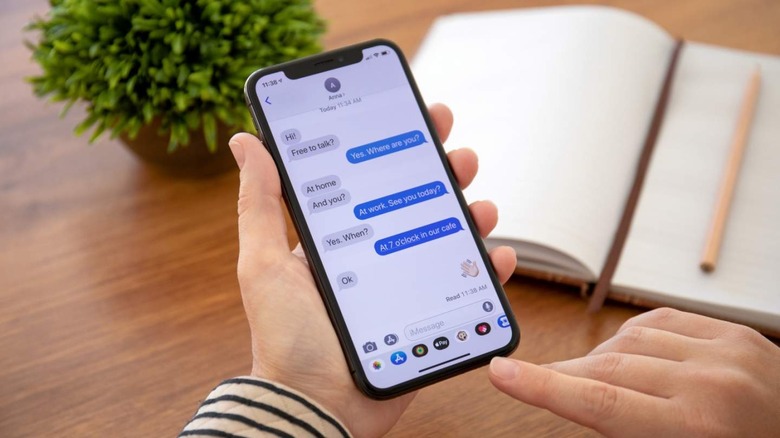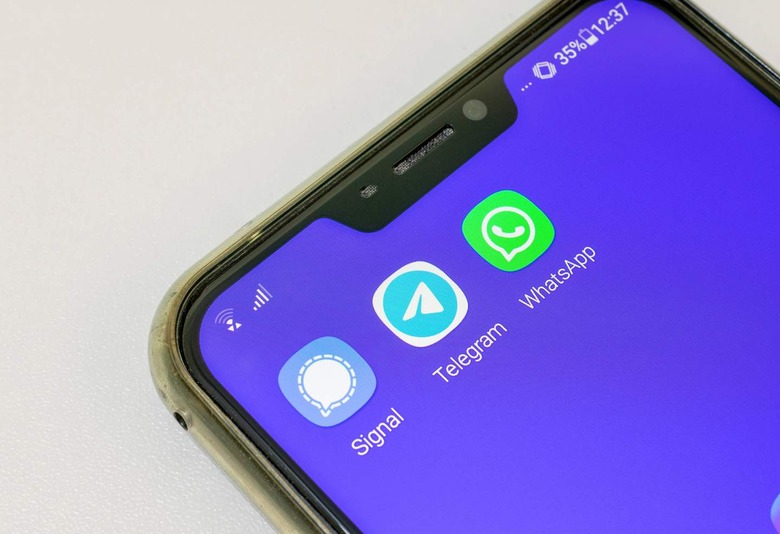iMessage, RCS, and the curse of green bubbles: iPhone and Android messaging is broken
Apple's iMessage has been at the center of many public debates for years for its differently-colored message bubbles. If you receive a text message from another Apple device, the iMessage app on iPhone, iPad, and Mac shows the received message in a blue bubble whereas it appears in green color if it is sent from a non-Apple device, like an Android phone.
Reports in the past have shown that the blue bubble is often seen as a status symbol, creating a rift between Apple and non-Apple users — especially among the young. Users with green bubbles have been subjected to snarky remarks, mockery among friends and family, and even bullying at school (via WSJ). As a result, we see many users switching to iPhones to avoid social alienation. The phenomenon is particularly prevalent in countries such as the US where users heavily rely on SMS for communication instead of instant messaging apps like WhatsApp or Telegram.
What makes iMessage irreplaceable?
It's just not because of the exclusivity that iMessage is so popular — its popularity is backed by some great features. iMessage allows synchronization of messages across all devices associated with a single Apple ID, comes with read receipts, typing alerts, emoji support, message reactions, and all of this doesn't count against the SMS limit — if any — enforced by mobile service carriers.

To match up to these features, Google introduced support for RCS — or Rich Communication Services, which is a messaging protocol which uses internet connection to support pretty much all of iMessage's features we listed above. However, unlike iMessage, RCS is not limited to or controlled by any phone brand, and is therefore available for wider use.
RCS has been positioned as the successor to SMS and MMS since its introduction over a decade ago. The original RCS initiative was "formed by a group of leading industry players" in 2007 and in 2008 the RCS Steering Committee was created by the GSMA (via GSMA). However, the service had been pretty much in limbo because of incompatibility between different carriers — and probably their lack of intent to implement a smooth communications channel connecting different carriers together.
RCS and Google Messages may still lack what iMessage offers
Although a few Samsung phones had supported RCS since at least 2015 (via RCR Wireless), the protocol got a major boost later in the year when Google acquired Jibe Mobile (via TechCrunch), a company that offered back-end services to carriers. Over the following years, Google spent efforts working on a messaging feature called Chat, which offered RCS-based messaging.
In 2018, Samsung also extended its support to allow seamless RCS messaging between its own Messages app and Google Messages. As of 2019, the feature was eventually merged into Google Messages — which is (supposed to be) the default messaging app on Android smartphones — and enabled RCS for some users in the US.
Chat is an optional feature in Google Messages that users can turn on to send and receive RCS messages using their Android phones. While it is pretty much on-par with iMessage in terms of functionality — and Google appears dead serious about promoting it after ditching instant messaging apps such as Hangouts and Allo, Apple still does not support RCS. Simultaneously, Apple also seems adamant about not launching iMessage on Android and while it cites security concerns as the reason, many advocates of open-sourcing iMessage claim Apple wants to maintain its reign with this "lock-in" technique.
At the same time, RCS Chat features on Google Messages still feel as incomplete as it was in 2019. RCS only works on supported messaging apps on Android and is turned off by default, even in Google Messages. If an Android user is not using RCS-supported apps like Google Messages or Samsung Messages, the RCS message shows as an SMS in plain text.
Apple avoids Google's appeals for RCS on iMessage
Every now and then, we can witness Google executives like Hiroshi Lockheimer, senior vice president of Android, evoking Apple on social media to add support for RCS to iMessages. Lockheimer came forward with another such appeal earlier this month when they shared a WSJ report stating how teens in the US "dread the green bubble." The report highlights many teens undergo bullying and name-calling for not belonging to the blue-bubble clique, often succumbing to peer pressure and ending up buying shiny iPhones just to avoid seclusion and behavior that classifies as harassment.
iMessage should not benefit from bullying. Texting should bring us together, and the solution exists. Let's fix this as one industry. 💚💙 https://t.co/18k8RNGQw4
— Android (@Android) January 8, 2022
Lockheimer's tweet also inflated another debate around chat bubbles. The executive once again invited Apple to include support for RCS — and clarifying Google does not insist on creating an Android version of iMessage (via Twitter). They said, "RCS would improve the experience for both iOS and Android users alike" and added that by adopting RCS, iPhone users would also benefit in terms of privacy as Apple adopts better encryption standards.
Supporting RCS would improve the experience for both iOS and Android users alike. That's right, RCS will also improve the experience and privacy for iOS users.
— Hiroshi Lockheimer (@lockheimer) January 10, 2022
The executive ended their tweetstorm saying Google will be "happy to work with Apple" to ensure the interoperability of RCS on Android devices and iPhones. No Apple representative participated in the discussion, and while we are unaware of the background talks, it is highly likely that Apple's position on RCS remains unchanged — at least until the mobile industry discontinues SMS and MMS standards.
We're happy to work with Apple to make RCS interop a reality.
— Hiroshi Lockheimer (@lockheimer) January 10, 2022
Alternatives to RCS and iMessage
Meanwhile, if you want to embrace a neutral messaging service, there are plenty of cross-platform messaging apps including WhatsApp, Telegram, Signal, and Skype. And while there is no official way to use iMessage on Android, there are some unofficial ways to accomplish it.

You can use services such as AirMessage, BlueBubbles, or weMessage to run iMessage on iMessage on Android, Windows, or Linux but you will require a Mac to run an iMessage server in the background. Setting up these services may require some advanced-level technical know-how (although a wide range of online tutorials make it relatively easier) along with some fortitude.
